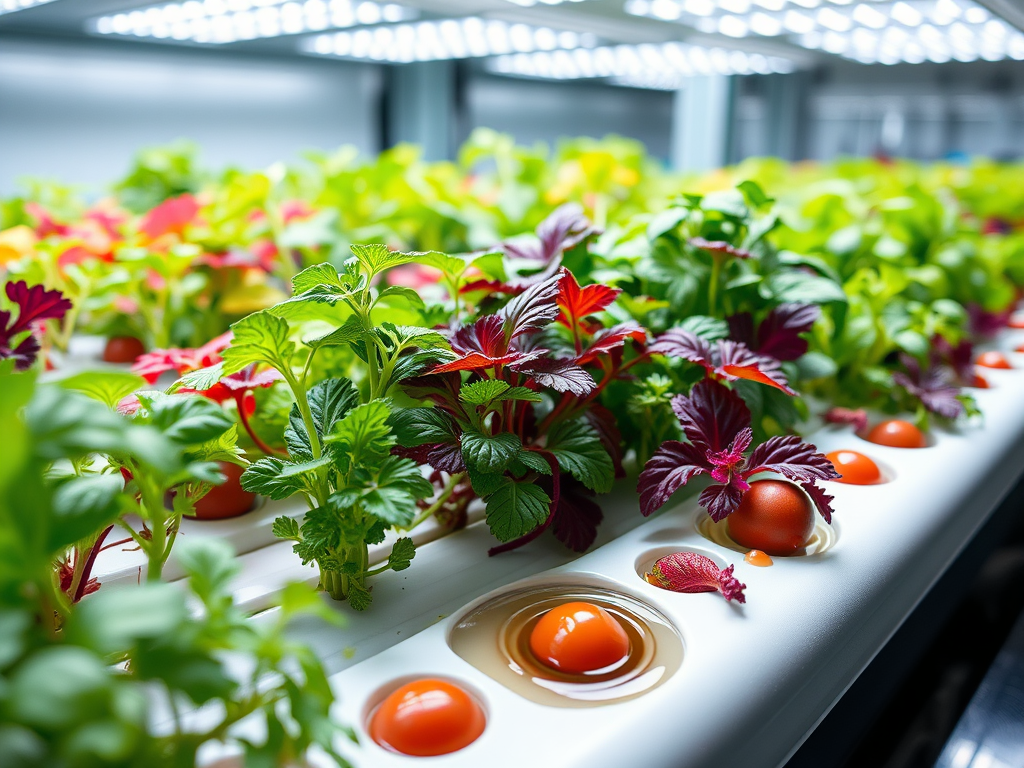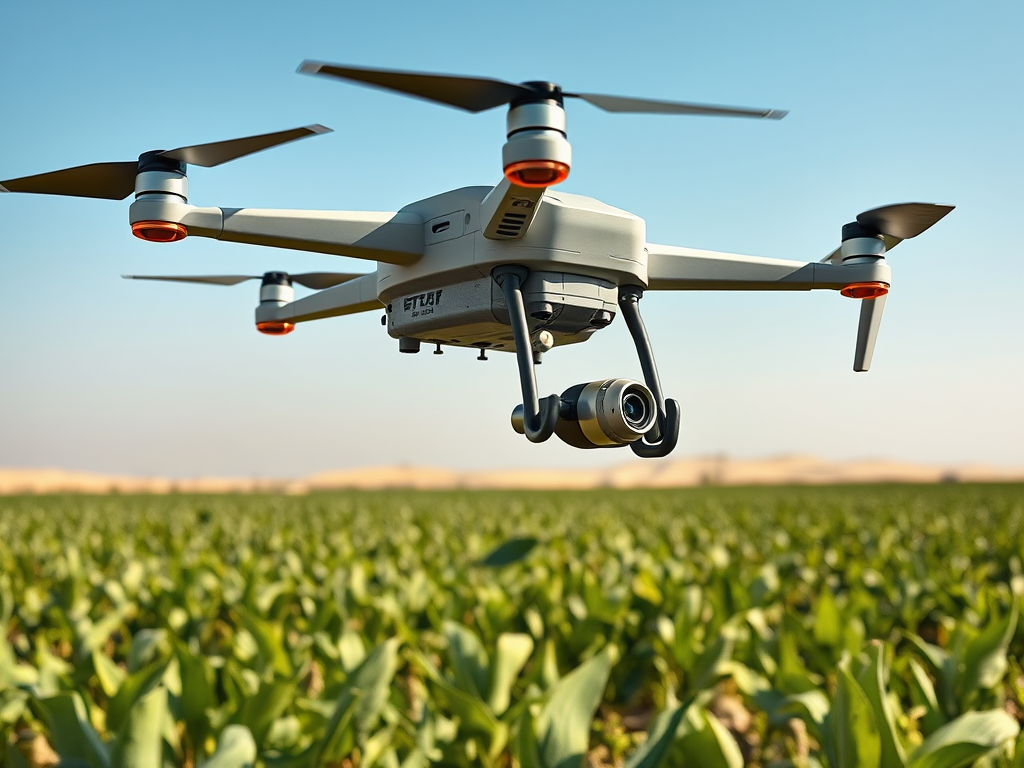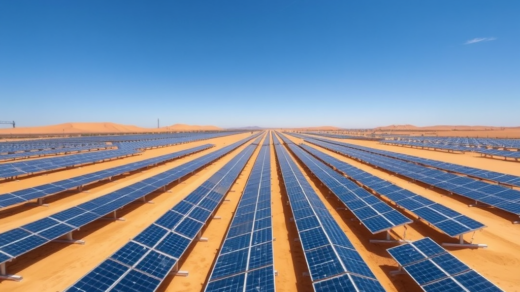Dubai, a city synonymous with groundbreaking development and sustainability, is increasingly leveraging smart agriculture innovations to tackle the challenges of food production and resource management. This approach encompasses the use of technology to enhance agricultural efficiency, sustainability, and productivity, vital for a region facing arid climates and limited arable land. As businesses in Dubai, including those involved in agriculture, consider their financial strategies, understanding the implications of the corporate tax for offshore companies in the UAE becomes essential. Smart agriculture promises to transform traditional farming practices, making them more resilient against climate change and environmental pressures. By integrating advanced technologies such as IoT, AI, and vertical farming systems, Dubai is setting a precedent for other regions to follow. This article delves into the various facets of smart agriculture innovations in Dubai and assesses their potential impacts on the future of food security and sustainability in the UAE.
Technological Integration in Agriculture

The infusion of technology into agriculture is a game-changer for Dubai. By employing cutting-edge solutions, farmers can enhance productivity, reduce waste, and utilize resources more efficiently. The integration of Internet of Things (IoT) devices allows for real-time monitoring of soil conditions, crop health, and weather patterns, facilitating data-driven decision-making. Additionally, Artificial Intelligence (AI) systems can predict crop yields and optimize watering schedules, guiding farmers in their operations. The following are some key technological integrations in Dubai’s agriculture:
- Automated irrigation systems
- Drones for monitoring crop health
- Blockchain for supply chain transparency
- Vertical farming technologies
- Hydroponics and aquaponics systems
These innovations not only maximize crop output but also minimize environmental impact, highlighting a comprehensive approach to sustainable agriculture.
Sustainability Initiatives and Environmental Impact

Dubai’s commitment to sustainability is evident in its agricultural initiatives aimed at minimizing environmental impact. The city promotes practices that reduce water usage, carbon emissions, and dependency on traditional arable land. Traditional farming consumes significant freshwater resources, but the adoption of hydroponics allows crops to grow in nutrient-rich solutions with minimal water. This method is particularly valuable in arid regions like Dubai, where water scarcity is a pressing issue. Furthermore, vertical farming techniques support urban agriculture, utilizing limited space effectively while reducing transportation emissions. In summary, Dubai’s smart agriculture innovations contribute positively to the environment through:
- Reduced water consumption
- Lower carbon footprint
- Increased biodiversity
- Enhanced soil health
- Promotion of local food sources
These initiatives underscore the importance of integrating sustainability into the agricultural framework to ensure long-term viability.
Economic Opportunities and Food Security
The potential economic benefits of smart agriculture innovations in Dubai are vast. By investing in technology-driven agricultural solutions, Dubai aims to enhance food security and reduce reliance on food imports. The city is strategically positioning itself as a hub for agricultural technology in the Middle East, attracting investment and fostering innovation. By increasing domestic food production through smart farming techniques, Dubai can mitigate the volatility associated with global supply chains. Citing specific areas of economic significance, we can highlight:
- Creation of new jobs in technology and agriculture sectors
- Encouragement of local startups focusing on agri-tech
- Investment in research and development of sustainable farming practices
- Strengthening partnerships between public and private sectors
- Enhancing tourism through agritourism initiatives
These economic opportunities illustrate that smart agriculture is not only about innovation but also about securing a stable and sustainable food future for Dubai.
The Dubai government is actively supporting smart agriculture through legislation, funding, and initiatives that align with the Dubai Vision 2040. This vision outlines the necessity for a resilient agricultural sector that can support the emirate’s growing population while minimizing its environmental impact. Key government initiatives include grants for research and development, partnerships with tech companies, and the establishment of innovation hubs focused on agricultural technologies. As a result:
- Policy frameworks are encouraging sustainable practices.
- Infrastructure is being developed to support smart farming technologies.
- Awareness campaigns educate farmers on innovative techniques.
This cohesive government strategy is vital for advancing the implementation of smart agriculture in Dubai, ensuring the emirate remains at the forefront of agricultural innovation.
Итог
Dubai’s smart agriculture innovations represent a promising frontier where technology converges with agriculture to address pressing food security and sustainability challenges. The integration of advanced technologies is transforming farming practices, making them more efficient and environmentally friendly. As the city continues to embrace these innovations, it sets a precedent for others to follow, demonstrating that smart agriculture is not only feasible but essential in the face of global challenges. By prioritizing sustainability and leveraging economic opportunities, Dubai is paving the way for a future where food production is both efficient and responsible.
Часто задаваемые вопросы
1. What technologies are used in Dubai’s smart agriculture innovations?
Technologies include IoT devices, AI for predictive analytics, automated irrigation systems, drones for monitoring, and vertical farming techniques.
2. How does smart agriculture contribute to sustainability?
Smart agriculture reduces water usage, lowers carbon emissions, promotes biodiversity, and enhances soil health through efficient and innovative farming practices.
3. What economic benefits does Dubai gain from smart agriculture?
The economic benefits include job creation, attracting investment, strengthening local startups, enhancing food security, and reducing import reliance.
4. How is the Dubai government supporting smart agriculture?
The government provides grants for technology development, fosters partnerships with tech companies, and establishes innovation hubs focused on agricultural advancements.
5. Why is food security important for Dubai?
Food security is crucial for Dubai to ensure a stable food supply for its growing population while minimizing the risks associated with global supply chain volatility.


